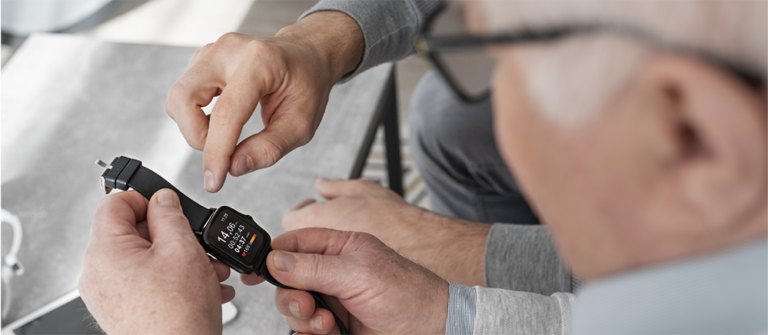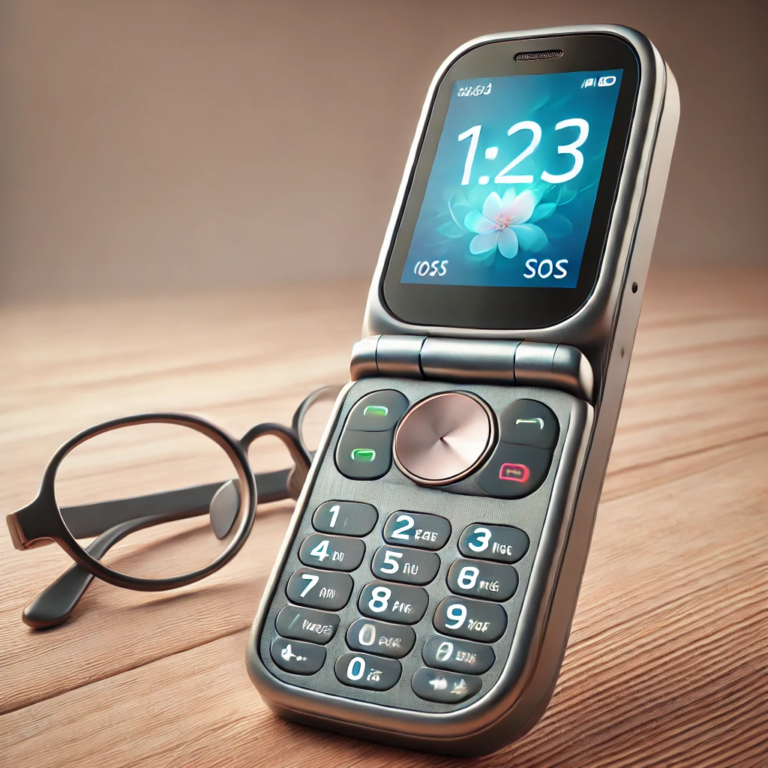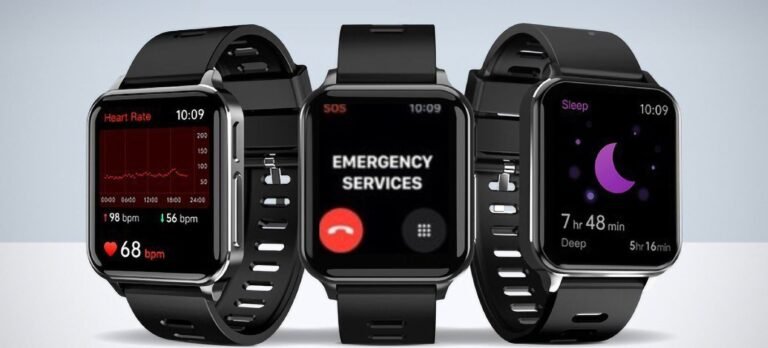
Finding affordable hearing aids for seniors doesn’t mean sacrificing quality. By exploring different purchasing options, discounts, and payment plans, you can secure the best inexpensive hearing aids for seniors at a reasonable price.
Online Retailers with Competitive Prices
Major online platforms like Amazon and eBay often provide discounts on hearing aids, along with seasonal promotions. Websites like Groupon frequently feature special deals, making it easier to find cost-effective options.
Local Audiologist Discounts
Many audiologists partner with hearing aid manufacturers to offer discounted hearing aids for seniors. Some also provide bundled packages, including fittings and follow-up adjustments at a reduced cost.
Manufacturer Offers
Purchasing directly from hearing aid manufacturers can unlock exclusive discounts, loyalty rewards, and flexible payment options. Subscription plans are another way to spread out the cost while ensuring access to high-quality devices.
When shopping for the best inexpensive hearing aids, always compare warranty coverage and after-sales support. Taking advantage of these strategies ensures seniors get reliable hearing aids at an affordable price, without compromising on features or performance.
Good Inexpensive Hearing Aids for Quality Sound
When searching for good inexpensive hearing aids, it’s essential to prioritize features that enhance sound clarity, comfort, and ease of use. Many inexpensive hearing aids that really work now include advanced digital signal processing, which helps reduce background noise and improve speech understanding in various environments. Rechargeable battery options eliminate the hassle of frequent replacements, while Bluetooth connectivity allows seamless integration with smartphones and other devices. Additionally, programmable settings give users control over their listening experience, ensuring adaptability to different sound conditions. Choosing a reliable brand with strong customer support and warranty coverage further guarantees long-term satisfaction. With the right combination of affordability and functionality, seniors can find effective hearing aids that fit their needs without overspending.
The Right Balance: Affordable Hearing Aids
Investing in hearing aids requires finding the right balance between affordability and essential features. While premium models include advanced technology, many budget-friendly options now provide high-quality sound, noise reduction, and Bluetooth connectivity. Mid-range hearing aids often deliver reliable performance without unnecessary expenses, making them a practical choice for seniors seeking durability and clarity.
Prioritize hearing aids with rechargeable batteries and adaptive listening settings for better usability. Regular maintenance services can enhance device longevity, ensuring consistent performance over time. While lower-cost models may seem appealing, choosing a brand with strong customer support and warranty coverage helps minimize future expenses and guarantees a reliable hearing experience.
Warranty and After-Sale Support: What to Expect
Choose hearing aids that offer a minimum one-year warranty. This typically covers manufacturing defects and can save you on potential repair costs. Look for options that include extendable warranties for added security.
- Standard Warranty: Most hearing aids come with a 1-2 year warranty. It’s advisable to confirm what specific issues are covered, such as device malfunction, battery failures, or damage unrelated to accidental breakage.
- Extended Coverage: Consider investing in an extended warranty. An additional service plan often covers loss and damage beyond typical wear and tear, providing peace of mind for long-term use.
- Trial Periods and Return Policies: Look for brands that offer a trial period, usually ranging from 30 to 60 days. This allows you to test the devices in various environments and return them if they don’t meet your needs.
- After-Sale Support: Evaluate the accessibility of customer service before making a purchase. Reliable support includes readily available customer service lines, email services, and physical service centers for immediate help.
- Regular Maintenance: Check if your provider offers regular maintenance services. Cleaning, adjustments, and software updates are critical for maintaining optimal performance.
- Replacement Parts: Verify the availability of replacement parts, such as earbuds or batteries, to ensure quick fixes and minimal downtime.
Research customer feedback on the brand’s warranty claims process and support service quality. Active support networks and clear policies can significantly enhance your experience.
Renting vs. Buying: Which is More Cost-Effective?
Renting hearing aids often proves more cost-effective for those still exploring different models or needing temporary solutions. Rental plans usually offer monthly payments, which can include maintenance and upgrades, reducing the initial financial burden. Consider renting if you anticipate short-term use or want flexibility in trying various models before committing.
Benefits of Renting
- Lower Initial Costs: Avoid high upfront expenses by opting for monthly rental payments.
- Access to Latest Technology: Rental agreements often enable upgrades to newer models without additional charges.
- Maintenance Included: Many plans cover repairs and regular servicing, keeping your aids in top condition at no extra cost.
- Trial Opportunities: Renting allows for experimentation with different hearing aids to find the perfect fit.
Advantages of Buying
Choosing to buy hearing aids can be economical in the long run, particularly for those requiring a permanent solution. Ownership eliminates ongoing rental fees and offers complete freedom in selecting features tailored to individual needs. Consider purchasing if you seek a long-term investment with fewer ongoing expenses.
- Long-Term Savings: After the initial purchase, ongoing costs generally drop compared to perpetual rentals.
- Customization: Full ownership ensures full control over modifications and adjustments, suited to personal preferences.
- No Contractual Restrictions: Free of binding agreements, purchase grants complete autonomy over device usage.
- Asset Value: Even as technology advances, the resale or trade-in value can contribute to future upgrades.
Flexible Financing and Assistance Options
Accessing good inexpensive hearing aids is easier with a range of financing and assistance programs designed to make them more affordable. Many manufacturers and clinics provide zero-interest financing plans, allowing users to spread payments over several months without extra costs. This eliminates the need for a large upfront payment, making the best inexpensive hearing aids accessible to more people.
Insurance and Government Support for Hearing Aids
Health insurance may partially or fully cover hearing aids, depending on the plan. Medicare Advantage and some private insurance policies offer hearing benefits, so reviewing coverage details is essential. Additionally, government assistance programs like Medicaid and state-funded initiatives help those who qualify based on income or medical necessity.
| Financing Option | Details |
|---|---|
| Zero-Interest Financing | Spread payments over several months without interest. |
| Insurance Coverage | Review policy for partial or full cost coverage. |
| Government Assistance | State programs offering financial help based on eligibility. |
| Veterans Benefits | Eligible veterans can receive hearing aids at reduced costs. |
Veterans and Alternative Payment Plans
Veterans can access hearing aid benefits through the Department of Veterans Affairs, often receiving devices at no or reduced cost. For those looking for flexibility, many retailers offer leasing options, similar to a subscription service, where users can upgrade to the latest models every few years. These programs ensure that seniors and individuals with hearing loss can find affordable solutions without compromising on quality.
Conclusion
Finding inexpensive hearing aids that work is now more accessible, with budget-friendly models offering noise reduction, Bluetooth, and rechargeable batteries. OTC options provide affordable customization without professional fittings, while customer reviews and warranties help ensure quality. With financing plans, insurance, and government assistance, seniors can secure reliable hearing aids without overspending. Prioritizing comfort, functionality, and affordability ensures a practical solution for improved hearing.
Q&A:
How can I find affordable hearing aids without compromising quality?
Finding affordable hearing aids without sacrificing quality involves conducting thorough research on different brands and models. Look for manufacturers that offer budget-friendly options and have positive reviews regarding performance and durability. It’s also advisable to consult with audiologists who may provide guidance based on your hearing requirements and suggest options within your budget.
Are there any government programs available to help cover the cost of hearing aids?
Yes, many countries offer government programs or subsidies to assist with the cost of hearing aids. For instance, in the United States, Medicaid may cover hearing aids for eligible individuals, and some states have specific assistance programs. It’s best to check with local health services or government websites for detailed information about available programs in your area.
Can affordable hearing aids truly offer reliable performance for everyday use?
Affordable hearing aids can deliver reliable performance if you choose the right model that meets your hearing needs. Many companies now produce budget-friendly options that incorporate essential technology to improve hearing. These aids can handle various environments effectively, but they might lack some advanced features found in more expensive models.
What should I look for in a hearing aid to ensure good quality?
When searching for a quality hearing aid, focus on key features such as sound quality, battery life, comfort, and connectivity options. Verify the brand’s reputation through customer reviews and seek recommendations from hearing professionals. It’s also beneficial to select models that allow trials or offer warranties to ensure satisfaction.
What are the best inexpensive hearing aids?
The best inexpensive hearing aids offer clear sound, noise reduction, and Bluetooth connectivity at a budget-friendly price. Popular options include MDHearingAid, Otofonix, and Audien, which provide essential features without the high cost of premium models.
Do inexpensive hearing aids really work?
Yes, inexpensive hearing aids really work, especially for mild to moderate hearing loss. Many budget-friendly models now include digital sound processing, background noise reduction, and rechargeable batteries, offering reliable performance without sacrificing quality.












